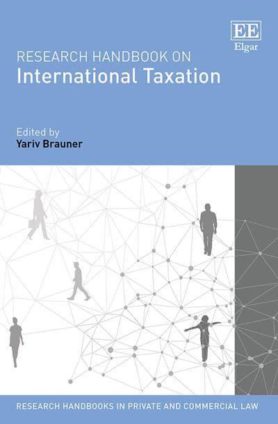Chapter 13: The Political Science of Global Tax Governance - Research Handbook on International Taxation
This chapter provides a review of the political science literature on the international tax regime. First, we distinguish between (1) interest- and (2) power-based, as well as (3) institutionalist and (4) ideational accounts.
We show how all four theoretical perspectives contribute to explaining the institutional design, development over time and policy outcomes of global tax governance. Second, we argue that states navigate within the trilemma of (1) avoiding double taxation, (2) avoiding double non-taxation and (3) maintaining national tax sovereignty.
Using the trilemma to distinguish three historic periods – foundation, stability and reform – we discuss the political determinants, history and current challenges of global tax governance. We argue that legal scholarship can gain important insights from the consciously theory-grounded accounts of political scientists.
